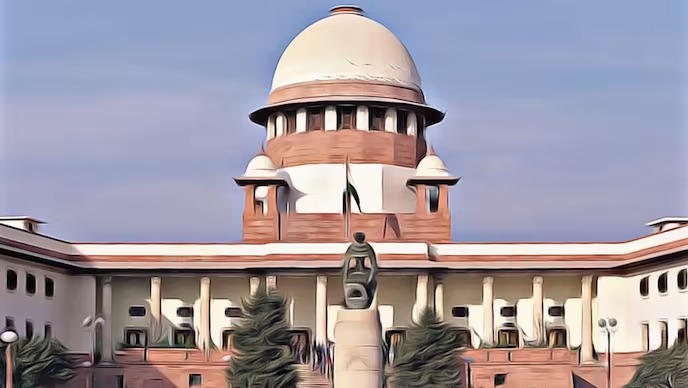J.C.S. Rawat, J.@mdashThis writ petition has been preferred by the Petitioner for a direction on the Respondent authorities to consider the case of the Petitioner for his compassionate appointment and it is also prayed for quashing the order refusing to appoint the Petitioner on the compassionate ground dated 23.5.2005 (Annexure-5) to the writ petition. The Petitioner''s father was appointed in the Respondent-Bank in the year 1976 and thereafter, he died on 29.3.2000; and thereafter, an application for seeking compassionate appointment was filed by the mother of the Petitioner, namely, Lalita Thakur (Annexure-2 to the writ application). Thereafter, the case of the Petitioner was not considered by the Bank, she preferred the writ petition before this Court vide WPS No. 5803 of 2003, which was disposed of by this Court on 02.12.2003 with a direction to the Bank to take a final decision upon the application filed by the wife of the deceased-employee as expeditiously as possible, preferably within two months from the date of the receipt of the order. In compliance of the said order, the Respondent-Bank rejected the application and offered ex-gratis amount of Rs. 1,50,000/- but the mother of the Petitioner did not accept the said amount. Thereafter, the son of the deceased-employee preferred this writ application.
2. This writ petition has been contested on the ground that the deceased employee died in harness and the scheme is revised by the Circular dated 1.11.2000 and the widow is entitled to claim compassionate appointment provided her monthly income does not exceed Rs. 5,000/-. The Scheme further provides that a sum of Rs. 1,50,000/- as Ex-gratis amount can be offered to the claimant in case the employment could not be provided. The same offer was given to the mother of the Petitioner. It was further alleged that the Petitioner''s mother preferred the claim for compassionate appointment of her son before the Bank but the Petitioner did not prefer any claim before the Bank.
3. I heard the learned Counsel for the parties and perused the records.
4. It is not in dispute that the Petitioner''s father died on 29.3.2000 and at the time of death of the father of the Petitioner the old Scheme dated 3.12.88 was applicable. Now the new scheme came into existence on 1.11.2000. Admittedly, the Petitioner''s father died prior to the revised scheme and now the question arises as to whether the Petitioner will be entitled to get the appointment under the old Scheme or under the revised Scheme. The matter has come up for consideration before this Court in several writ petitions and this Court in Writ Petition being WP(S) No. 4348/01 (Prashant Kumar Rai v. United Bank of India and Ors.) at page 3 of the judgment dated 16.5.2002 has held as under:
At this stage, I am not going to express any opinion on the validity of the revised scheme issued by the Respondent Bank. Suffice it to say that the father of the Petitioner died on 25.11.98 and admittedly in the original scheme, the son of the deceased employee was entitled for compassionate appointment. This was the reason the Respondent-Bank vide letter dated 22.2.99 and 22.1.2000 called upon the Petitioner to submit all the documents and on submission of all the documents by the Petitioner, the application was processed. In that view of the matter, the claim of the Petitioner could not have been rejected on the basis of revised scheme, which came into operation in 2001. The decision taken by the Respondent-Bank refusing to give employment to the Petitioner on the ground of provisions of the revised scheme 2001 is therefore absolutely illegal, arbitrary and unjustified. In my opinion, Petitioner is entitled to compassionate appointment on the basis of the scheme which was applicable on the day when Petitioner''s father died
5. This decision of this Court has been followed by another Co-ordinate Bench of this Court in WP(S) No. 6943 of 2002 (Lal Bahadur v. United Bank of India and Ors.) and the Court has held that if the father of the Petitioner died in harness prior to the enforcement of revised Scheme, the old Scheme would prevail and thereafter, again the same view has been reiterated in another Writ Petition being WP(S) No. 523 of 2003 (Sudipto Banerjee v. United Bank of India and Ors).
6. In view of the above proposition of law laid down by the other Co-ordinate Benches of this Court, I also contribute the same view and hold that the old Scheme will prevail in the case of the Petitioner.
7. The learned Counsel for the Respondent Bank contended that the earlier writ petition was filed by the mother of the Petitioner and she also preferred application before the Bank but the present Petitioner had never come before the Bank or before this Court prior to this writ petition and hence the present writ petition is not maintainable.
8. The learned Counsel appearing for the Petitioner refuted the contention and contended that the Scheme in which the compassionate appointment is to be provided that the first right has been given to the widow and the second right has been given to the son of the deceased, if the application has been filed either by the widow for his son or by the son i.e. both are the same.
9. From perusal of the record, it reveals that the mother of the Petitioner also filed an application seeking compassionate appointment for her son and the present writ petition has also been filed by the son of the deceased employee before this Court for his compassionate appointment. I do not find any force in the contention of the learned Counsel for the Respondents.
10. Admittedly, the Petitioner''s father died prior to the enforcement of the revised scheme, the son of the deceased employee is entitled for his compassionate appointment and the Respondent authorities can not refuse to provide him compassionate appointment and the order passed by the Respondent authorities is liable to be set aside.
11. Under the said premises, the Respondent authorities are directed to consider the case of the Petitioner for his compassionate appointment on the basis of the scheme prevailing at the time of death of the father of the Petitioner and pass an appropriate order in accordance with law expeditiously, preferably within a period of three months from the date of the production of a copy of this order in the light of the observations, indicated above.
12. Accordingly, this writ petition is allowed. No order as to costs.

